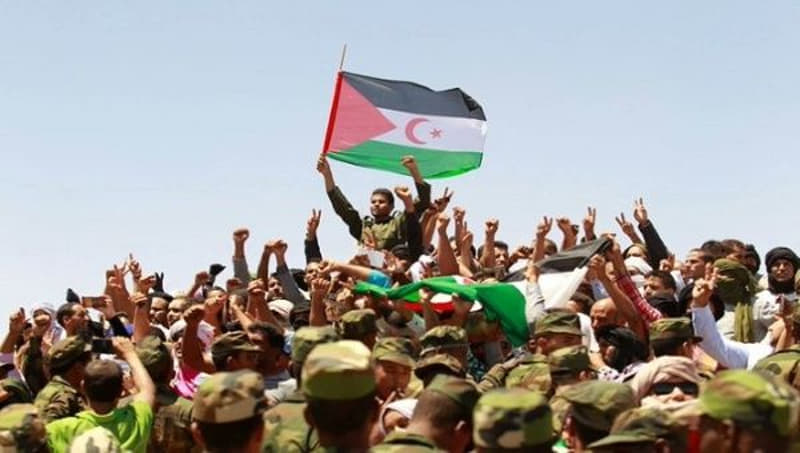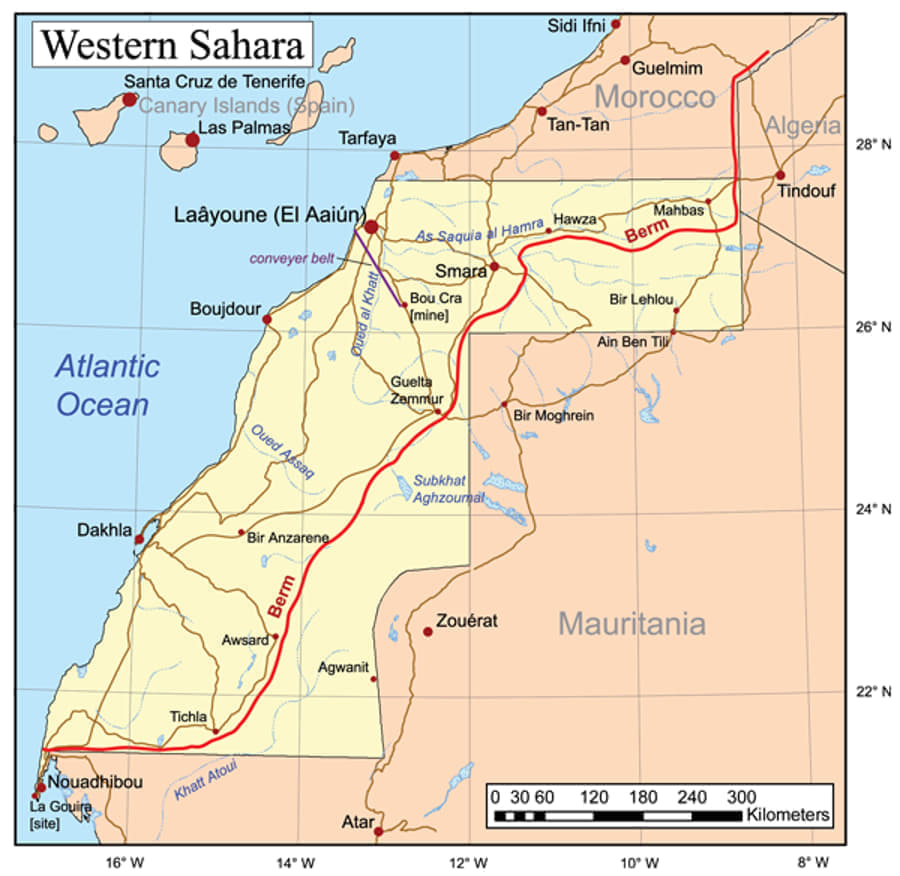It is no surprise to see a party of the Spanish left betraying the Saharawi people. Moreover, they seem to sacrifice their own principles in favor of a PSOE completely devoted to the narco-dictatorship of Mohamed VI and his expansionist aspirations.
The affinity of the Spanish left with the Saharawi cause has been a constant in their electoral programs and public statements. However, the repeated betrayals to this cause have sown doubts. It all began with a young Felipe Gonzalez, who in 1976 promised, on a trip to the Saharawi refugee camps, to accompany the Saharawi people in their just struggle until the final victory. However, when he came to power, Gonzalez strengthened his alliance with the Moroccan monarch, forgetting the already punished Saharawi people.
The left has united and regrouped under various acronyms, from “Izquierda Unida” to Podemos, now Unidas Podemos, and recently SUMAR. It seems that the Spanish left only knows how to move and survive between the hopeful novelty and the supposed definitive alliance that promises much but falls, devoured by its own failure, being reborn again under new acronyms and promises.
This is how we Saharawis have been for more than 40 years, listening to false promises, receiving “solidarity” politicians in our refugee camps and falling again and again into the same mistake by believing those who disappoint us. I have to make it clear that we do not expect anything from the Spanish right wing, which is neither here nor expecte;, they never promised nor were there. Those who championed the Saharawi cause were the leftist political parties in Spain, which have always disappointed and disillusioned. From Gonzalez, through Zapatero, who was the president who sold the most weapons to Morocco, weapons then used against the Saharawi people, to Sanchez who was the most indecent president to publicly recognize that Western Sahara should be an “autonomy under Moroccan sovereignty,” supporting a fierce illegal occupation and violating the international legality that calls for a referendum of independence in Western Sahara. This position contradicts the will of the majority of Spaniards who support the Saharawi cause and tramples on the aspirations of the Saharawi people who have been resisting for more than 50 years for their independence.
Looking at the parties to the left of the PSOE, we Saharawis may have to settle for a tweet or, hopefully, a statement in the press in support of the “just struggle of the Saharawi people.” But beyond this media gesture, there will be no clear initiatives or actions, and it is time that we recognize and accept it. We are only an electoral slogan, a badge to wear on our chest to look really “leftist” in some demonstration or public act, but beyond that, we are nothing. Morocco will always be the friend, the ally and the chosen one.
The party led by Yolanda Diaz, SUMAR, promised to reverse the decision taken by Pedro Sanchez and return Spain to its “neutral” position on the Western Sahara issue. However, in the recent government agreement signed between the PSOE and SUMAR, the Saharawi question is nowhere to be found. SUMAR had to choose between the just Saharawi cause or the illegal occupation of Mohamed VI. It had to choose between fidelity to its promises or ambiguity out of self-interest. In both cases, I choose the second option.
Meanwhile, the Saharawi people continue to believe in the Spanish “new left” that always finds a way to be reborn under new acronyms, new colors and new promises that, of course, will never be fulfilled.
Finally, we recall that the Saharawi people do not ask for solidarity or alms, they simply ask that Spain fulfills its legal duty as a colonial power in Western Sahara; but this request becomes a demand, especially to those who have championed our struggle and have promised to carry out the long-awaited decolonization, and then betray us in the most shameful ways. At this point, I recommend to my fellow Saharawis to change the demand for a simple request: that the Spanish left stop trafficking in our pain and using our cause as a bargaining chip.
Taleb Alisalem was born in the Sahrawi refugee camps and grew up in Spain. He trained in International Cooperation and Development Aid at The Open University. He is a prominent political activist and analyst who specializes in the Western Sahara, the Middle East as well as African issues. This article appears courtesy of Posmodernia.

